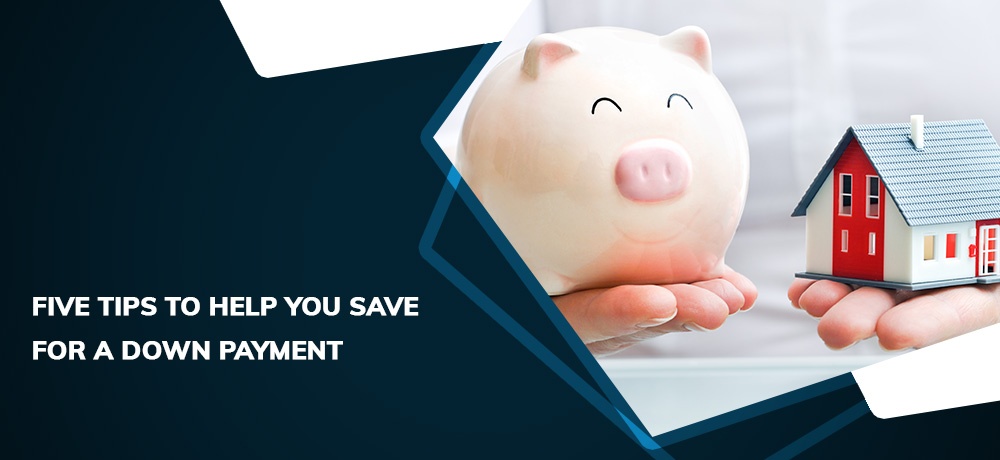Five Tips to Help you Save for a Down Payment

Whether you’ve already started saving for a house or you’re starting to save for the first time, there are many ways you can save money for a down payment. Here are a few tips to get you started:
1. Create an actual budget and timeline- either on paper or digitally to help you track your spending
The first step in the saving process is creating a tangible budget. It is important to know exactly where your money goes every month in order to pinpoint the areas where you could be saving more.
Start by figuring out your monthly take home income, and include your spouse or partner’s if relevant. Next, scrutinize your credit card and bank statements to see what you are spending your money on every month. Once you do this, you can identify non-necessity areas that you could possibly cut back on in order to save.
There are great budgeting apps that can help you calculate your expenses as well as help you to set a realistic budget that you can stick to and create a timeline in which you can reasonably save for your down payment.
2. Research home prices in your area to calculate approximately how much you will need to save
Another important step is to research home prices in your desired neighborhood to help you set your savings goal. The minimum down payment required is 5%; however, you also need to have an additional 1% (approximately) for closing costs. A knowledgeable realtor can not only help you look for homes that fit into your budget, but can provide you with neighbourhood information and direct you to possible up and coming areas where your savings can go further.
3. Start paying down any debt you have
Start reducing your debt before you apply for a mortgage. Look at exactly how much you owe on your credit cards, car loans, lines of credit, etc. Allocating your extra income towards debt might seem counterintuitive; however, one of the important things lenders look at when they consider you for a mortgage is your Debt to Income ratio. Unfortunately, If you try to apply for a mortgage with too much consumer debt, you won’t qualify. It is also very difficult to save at all if your hard-earned money is going towards paying off the interest on loans every month.
4. Automate your savings by auto-depositing into a separate account
This is a great option if you find it difficult to save every month or find yourself spending your allocating savings if they are left in your account. After you’ve decided how much you are able to save each month, open a separate saving account with your bank. You can then set up an automatic withdrawal from your primary account into a separate account, ensuring that the money is taken out before you are able to spend it.
5. Speak to a broker early to give you an idea of where you stand in terms of qualifying for a mortgage
Reaching out to an experienced mortgage broker as early as possible can give you a good idea of where you stand financially in terms of qualifying for a mortgage. They can also give you an idea of what home prices might fit into your budget and what you could qualify for when they look at your income, credit score, debts, and current savings. If there are any major changes you need to make in order to increase the chances of getting your application approved, a broker can not only identify them but can also help guide you and put a plan in place to reach your homeownership goals!
If you’re looking for an experienced mortgage broker in Alberta, reach out to Jordan St. Pierre. We offer home purchase mortgages, first-time home buyer mortgages, pre-approvals, mortgage refinance, mortgage renewals, private mortgage financing, home equity/mortgage refinancing, and condominium corporation loans. We offer services across Spruce Grove, Stony Plain, Edmonton, St. Albert, and Devon, AB.
Get in touch with us today!
To learn more about the services we offer, please click here. For more information, please call us at (780) 953-7314 or email us at jordan@modernfinance.ca.

